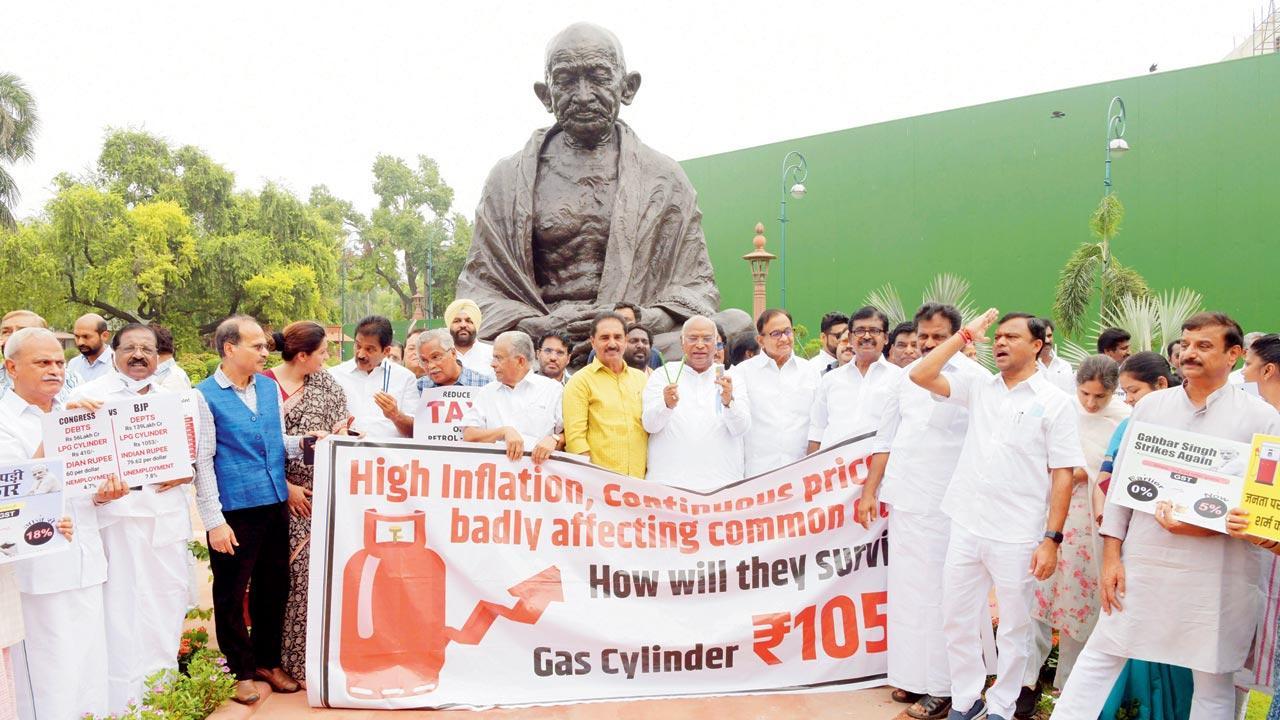Revenue secy says decision was taken after states compl-ined about losing revenue and asked govt do something

Opposition leaders protest inflationin New Delhi, on Friday. Pic/ANI
GST on pre-packaged goods/ food packets was levied after some states gave feedback of losing revenues they previously earned from levy of VAT on food items, a top government official said.
ADVERTISEMENT
The decision to levy the tax, which came into effect from July 18, is not that of the Centre but of the GST Council. It was also recommended by a group of ministers comprising minister representatives of some states, said Revenue Secretary Tarun Bajaj. Pre-packed and labelled pulses, wheat, rye, oats, maize, rice, flour, suji, besan, puffed rice and curd/lassi will attract 5 per cent GST.
The comments come amid protests by the Opposition. “Before GST came into place (on July 1, 2017), this (tax on essentials) was there in many states during the VAT regime. States were getting revenue (from levying VAT on food items),” Bajaj said.
Post-VAT, the rules provided that GST will not be levied on pre-packed goods if the brands gave up actionable claims on the brand. This led to some of the well renowned brands beginning to sell these items in packets that carried their brand but no actionable claim on it and so did not attract the 5 per cent GST. Some companies complained.
“States also gave us feedback that we used to get a lot of money before GST came in and that we should do something... Secondly, states gave us feedback that they were losing revenues on it and not getting revenues they used to get in pre-GST regime,” he said, but didn’t name the states. The July 18 decision was taken unanimously by all stakeholders, including the states, Bajaj added.
This story has been sourced from a third party syndicated feed, agencies. Mid-day accepts no responsibility or liability for its dependability, trustworthiness, reliability and data of the text. Mid-day management/mid-day.com reserves the sole right to alter, delete or remove (without notice) the content in its absolute discretion for any reason whatsoever
 Subscribe today by clicking the link and stay updated with the latest news!" Click here!
Subscribe today by clicking the link and stay updated with the latest news!" Click here!







